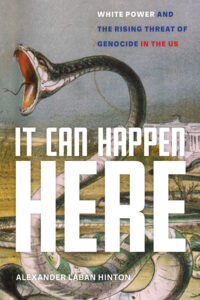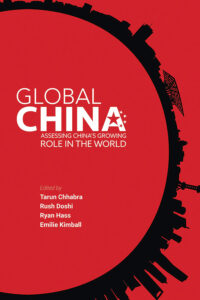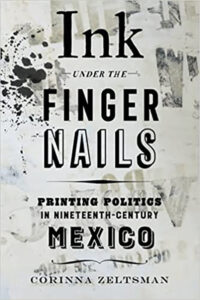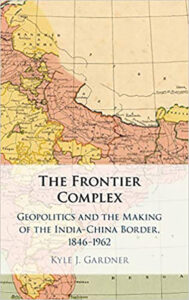Recommended Reading: Books by Hinton ’85, Kimball ’11, and Others
 Alexander Laban Hinton ’85
Alexander Laban Hinton ’85
It Can Happen Here: White Power and the Rising Threat of Genocide in the U.S. (NYU Press, 2021)
Although the election of Donald Trump in 2016 came as a surprise to many, it wasn’t a shock for others, including Alexander Hinton. In It Can Happen Here, Hinton argues that Trump’s election actually lined up perfectly with America’s long-standing history of white supremacy and genocide. A prominent expert on the mechanisms of genocide, Hinton warns that signs of genocide that characterized America’s past are still very much present in the America we know today, and urges concerted action in order to prevent more violence.
 Emilie Kimball ’11, Tarun Chhabra, Rush Doshi, and Ryan Hass
Emilie Kimball ’11, Tarun Chhabra, Rush Doshi, and Ryan Hass
Global China: Assessing China’s Growing Role in the World (Brookings Institution Press, 2021)
In recent years, China has emerged as a significant global power and one of America’s key competitors. What accounts for this change, and what are its implications for the future? Furthermore, how can we better understand China’s motivations? In Global China, co-edited by Emilie Kimball, a collection of Brookings scholars (aided in part by intern India Daniel ’22) seeks to answer these questions, providing an account of how China’s past, present, and future actions will affect not only the United States but also the rest of the world. The result is an exhaustive analysis of China’s increasingly crucial presence in the world.
 Leonard Rubenstein ’70
Leonard Rubenstein ’70
Perilous Medicine: The Struggle to Protect Health Care from the Violence of War (Columbia University Press, 2021)
In all circumstances, and especially in times of war, people depend on health care workers and hospitals to care for them. But what happens when hospitals—including the doctors, nurses, and patients housed inside of them—become victims of violence themselves? In Perilous Medicine, human rights lawyer Leonard Rubenstein investigates the often-unsafe lives that health care workers and their patients must lead in times of political strife. In addition to illustrating the gravity and depth of the crisis, Rubenstein offers a path forward, suggesting that strategies to lessen these crimes do exist and should be implemented.
 Corinna Zeltsman ’06
Corinna Zeltsman ’06
Ink Under the Fingernails: Printing Politics in Nineteenth-Century Mexico (University of California Press, 2021)
During the pivotal 19th-century independence era in Mexico, printing shops were more than simply locations where pamphlets, broadsides, letters, and other forms of printed materials were created —they were key sites in the broad struggle for political power. In Ink Under the Fingernails, Corinna Zeltsman, a historian and a trained letterpress printer, examines the practical and discursive negotiations that surrounded the printing press. Zeltsman draws from a range of sources, including archival records and never-before-analyzed reports, to depict printing shops as critical spaces that blurred the lines between manual and intellectual laborers.
 Kyle J. Gardner ’06
Kyle J. Gardner ’06
The Frontier Complex: Geopolitics and the Making of the India-China Border, 1846–1962 (Cambridge University Press, 2021)
In The Frontier Complex, Kyle J. Gardner explores the transformation of the historical Himalayan border territory of Ladakh (once called “the crossroads of High Asia”; now a part of India) from contested precolonial historical entrepot to British colony to eventually, postcolonial state. Based on Gardner’s close analysis of sources in a range of languages, including Urdu, Ladakhi, Hindi, and Tibetan, the book provides a new perspective on both Ladakh’s history as well as how colonial-era notions of territory can continue to influence present-day geopolitical disputes.



